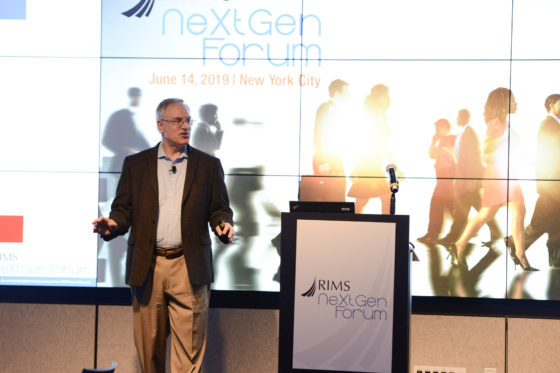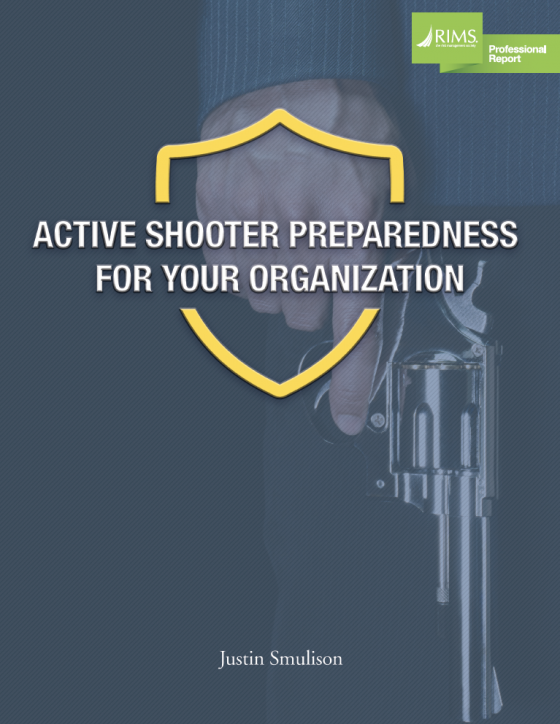
“We’re becoming numb to the news,” said risk management veteran and author Joseph Mayo. “We’ve seen a 1,200% increase in daily record loss in the last five years. Globalization has created faster-moving and infinitely more complex risks and that’s what we have to adapt to.
”
In his keynote, “Don’t Tell Me What I Know, Tell Me What I Don’t Know,” at last week’s RIMS NeXt Gen Forum 2019 for rising risk professionals, Mayo discussed environmental, social and governance (ESG) risk events and how they will continue to impact the risk management community, noting that a 1,000% increase in ESG events has occurred from 2010 to 2018 compared to each of the three prior decades.
(Hear a preview from his RIMScast interview.)
Despite flaws in actuarial approaches and the challenges surrounding artificial intelligence such as bias and adversarial machine learning, Mayo said that the profession’s outlook is “not all doom and gloom.”
“The future of risk management is to make decisions with incomplete, inaccurate and obfuscated information,” he said. “We will have to embrace fuzzy logic because decisions need to be made quicker.
We no longer have decades to develop actuarial models.”

Shortly afterward, Robin Joines of Sedgwick and Kristy Coleman of Turner Broadcasting System hosted risk management “Jeopardy!” While not quite as fast-paced nor as well-funded as the long-running game show, the hosts provided a forum for discussion and debate on explored topics from business travel etiquette and travel risk to communication and corporate politics. Discussing the images people project when they cross their arms, for example, while many agreed that it projects rigidity, one audience member cited a recent Wired video that reported it could also be considered a method of self-soothing rather than hostility or reservation.
Joines and Coleman were open-minded in their scoring and even led a quick tongue twister that kept the atmosphere light and fun. “Final Jeopardy” focused on public speaking, offering some practical speech delivery tips that would benefit any professional. For example, Joines said, “Talk from your knowledge base, and not from your note cards, and you’ll come across as confident.”

The forum closed with “You are Your Brand – How to Distinguish Yourself in Your Career,” presented by Kathleen Crowe, chair of the RIMS Rising Risk Professionals Advisory Group, and Steve Pottle, RIMS vice president.
Despite their differences in age and experience, the duo explained how their careers followed similar patterns. Neither presenter had begun on a risk management track, with Pottle starting out as a budding Canadian radio personality and Crowe initially expecting to work for an incumbent U.S. senator. Taking career risks brought them into risk management, and they shared lessons from their respective journeys that ultimately influenced them to be active leaders in their organizations and the industry at large.
One key tip of theirs was planning a personal goal that aligns with a long-term strategy of an organization, which can be an early indicator of a transition to a leadership role.
buy orlistat online https://royalcitydrugs.com/orlistat.html no prescription
From there, they said, you can build your personal brand regardless of your industry.
“Your personal brand lies somewhere in between how you see yourself and how others see you,” Pottle said.
Click here for more NeXt Gen Forum coverage on the “Legal Checklist for AI Risk.”
Click here for “Key Takeaways from RIMS NeXt Gen Forum 2019,” a special RIMScast episode produced live from the event.


